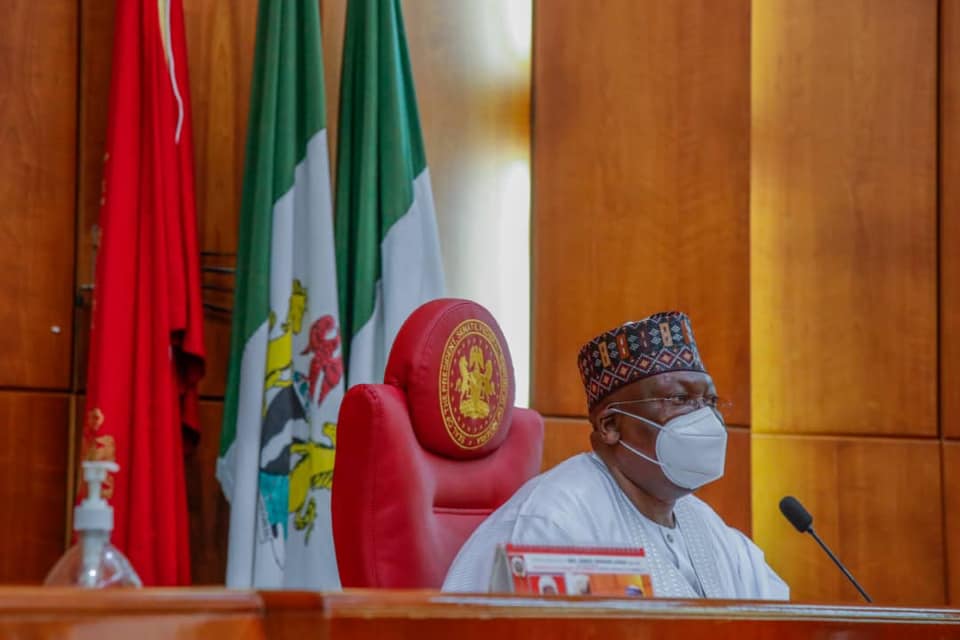There are strong indications that President Muhammadu Buhari will sign the Electoral Act Amendment Bill this week, the Senate President, Ahmed Lawan has confirmed.
Lawan, who met with President Buhari at the State House, Abuja, on Tuesday, January 18, 2022, following their resumption for legislative duties after the Christmas break, also confirmed that the contentious Electoral Act Amendment Bill will be represented for deliberations on the floor of the National Assembly on Wednesday.
The President had declined assent to the Electoral Amendment bill over the direct primary clause. The Executive had hinged its decision to send back the bill to the legislature on that singular basis.
While the delays persisted, a coalition of civil society organisations mounted pressures on the government, insisting that time was running out to have an Act that would guide the conduct of next year’s elections.
Asked when the National Assembly intends to pass the bill after expunging the primary clause and reforward to the presidency, Lawan said, “Well, I smile because that again, by the grace of God tomorrow both chambers, the Senate and the House of Representatives will pass the bill. And I hope that before the end of the week, the bill could be brought back to Mr. President for his assent.
“But one thing I’m sure by the grace of God is we are passing the bill, the Electoral Act Amendment Bill 2010, tomorrow Wednesday the 19th in both chambers, and we are happy that at the end of the day, we have been able to narrow down our differences and arrive at the very patriotic resolution that our country must have a new electoral law that will guide the 2023 general elections in the country, and Nigeria would have everything to benefit from this law.
“For us in the ninth assembly, the Electoral Act amendment bill is one of our major legislative agendas that we wanted to deal with, and to the glory of God Almighty, by tomorrow, we will be able to pass that bill to Mr. President to assent to it. I hope that the cleaning process will not take more than a day. But if it does, then it has to be early next week. But I’m very optimistic that there is not much to clean up because normally, when we pass a bill like this, it goes to the legislative drafting unit of the National Assembly.
“So what you have in the National Assembly, as passed, is not the final document that comes to the President. And I know that many people were saying there were so many flaws in the bill that was brought to Mr. President, maybe what they had was the bill passed in the Senate or in the House, not the one that was cleaned up, the final document that was cleaned up, because even us we didn’t have that document, we sign it up but I appreciate the efforts of all Nigerians in taking interest in what we do, and even participating by way of looking for what is right and what is not when we pass our bills, or in terms of legislative activities, generally.
“On the whole, I think it’s a worthwhile exercise that we’ve worked so hard in a very bipartisan manner to pass the electoral amendment bill before and Mr. President to raise the observations he did, and for the National Assembly, having consulted widely with Nigerians, with our constituents, and we came to the conclusion, in both chambers, across party lines, in a very patriotic way to say, oh, what we need to do is not waste time, time is of essence in this respect.
“We should just look at the possibility of opening up the mode of primaries. So that you can have direct, you can have indirect and even consensus, and it’s up to political parties to decide which option is okay for them, and at what time, but I’m sure that all the options will be used, all the options will be used by political parties, in different occasions or whatever.”







